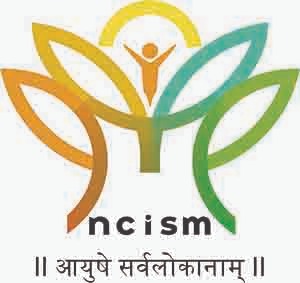National Commission For Indian System Of Medicine
National Commission For Indian System Of Medicine
National Commission for Indian System of Medicine (NCISM) has come into existance on the 11th day of June 2021.
It is a statutory body constituted under NCISM Act, 2020 vide gazette notification extraordinary part (ii) section 3(ii) dated 21.09.2020. It replaced the erstwhile regulator Central Council for Indian Medicine (CCIM) to ensure transparency.
NCISM Act, 2020
 An Act to provide for a medical education system that improves access to quality and affordable medical education, ensures availability of adequate and high quality medical professionals of Indian System of Medicine in all parts of the country; that promotes equitable and universal healthcare that encourages community health perspective and makes services of such medical professionals accessible and affordable to all the citizens; that promotes national health goals; that encourages such medical professionals to adopt latest medical research in their work and to contribute to research; that has an objective periodic and transparent assessment of medical institutions and facilitates maintenance of a medical register of Indian System of Medicine for India and enforces high ethical standards in all aspects of medical services; that is flexible to adapt to the changing needs and has an effective grievance redressal mechanism and for matters connected therewith or incidental thereto.
An Act to provide for a medical education system that improves access to quality and affordable medical education, ensures availability of adequate and high quality medical professionals of Indian System of Medicine in all parts of the country; that promotes equitable and universal healthcare that encourages community health perspective and makes services of such medical professionals accessible and affordable to all the citizens; that promotes national health goals; that encourages such medical professionals to adopt latest medical research in their work and to contribute to research; that has an objective periodic and transparent assessment of medical institutions and facilitates maintenance of a medical register of Indian System of Medicine for India and enforces high ethical standards in all aspects of medical services; that is flexible to adapt to the changing needs and has an effective grievance redressal mechanism and for matters connected therewith or incidental thereto.
Aims and objectives of NCISM
The Aims and objectives of the National Commission for Indian System of Medicine are to
- Improve access to quality and affordable Ayurveda, Unani, Siddha and Sowa-Rigpa (AUS&SR) medical education
- Ensure availability of adequate and high quality AUS&SR medical professionals in all parts of the country;
- Promote equitable and universal healthcare that encourages community health perspective and makes services of AUS&SR medical professionals accessible to all the citizens;
- Encourage medical professionals to adopt latest medical research in their work and to contribute to research;
- Objectively assess and rate medical institutions periodically in a transparent manner;
- Maintain a National AUS&SR medical register for India;
- Enforce high ethical standards in all aspects of AUS&SR medical services;
- Have an effective grievance redressal mechanism.
Indian Systems of Medicine
The Traditional medical systems like Ayurveda, Unani, Siddha & Sowa Rigpa come under the heading of Indian Systems of Medicine.
Autonomous Boards under NCISM
There are four autonomous boards entrusted with conducting overall education of Ayurveda, under Board of Ayurveda and Unani, Siddha & Sowarigpa under Board of Unaini, Siddha and Sowarigpa. There are two common Boards namely, Board of assessment and rating to assess and grant permission to educational institutions of Indian systems of Medicine and Board of ethics and registration of practitioners of Indian systems of medicine to maintain National Register and ethical issues relating to practice under the National Commission for Indian Medicine.
Last Modified : 2/8/2024
Ministry of Ayush and Food Safety & Standards Auth...
This topic provides information about Kharjuradi M...
This topic provides information about Preventive a...
Provides information about WHO Global Centre for T...
